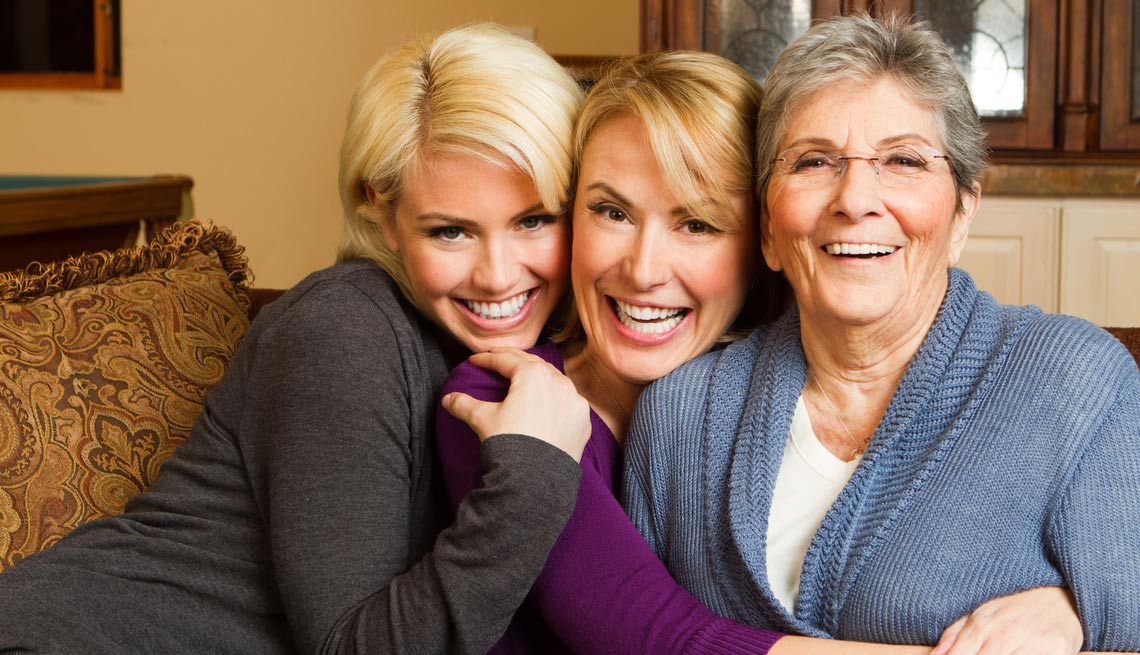Is It Time Your Loved One Needs At-Home Care?
5 ways to evaluate if you both need support
There’s no place like home — but for the 43.5 million family caregivers supporting older loved ones across the U.S., keeping Mom or Dad safe, healthy and comfortable at home isn’t always easy. Advancing Alzheimer’s or a stroke that affects mobility can make home a hazardous place. Grief and depression following the loss of a spouse can make home a lonely place.
Enter home care: a win-win for the older adults who want to stay where the heart is and for the caregivers who worry about leaving them there.
There are two types of in-home care. Home health care is for older adults who need medical services, generally administered by a licensed professional (or as directed by a prescription or physician). Home care covers a wide range of basic support services like cooking, cleaning and companionship, so that loved ones can live safely and comfortably in their own homes for as long as possible. It’s important to note that not all companies providing home care are equal. Some offer services that span the care continuum – from providing personal care to specialized Alzheimer’s care and hospice support, along with caregiver education and resources.
5 Signs Your Loved One May Benefit From Home Care
Think about the last few weeks. Have you been spending more time at Mom’s? Have you been increasingly worried about leaving Dad alone overnight? Consider these signs that your loved one may need help at home:
- Losing interest in meals. Has Mom lost weight, or is Dad gaining weight? Are they eating more junk or processed foods? Has Mom been complaining about cooking meals, or does she seem less motivated about preparation? Check the fridge and cupboards for expired or rotten food too. Take note if the groceries you bought within the last few weeks have gone untouched.
- Piles of paperwork. Who’s keeping up with the family finances? If bills are not getting paid and the mail is piling up, your loved one may need assistance or reminders to complete these important daily activities.
- Declining personal hygiene. Mom’s not been the same since Dad passed. Now, your once fastidious mother is not bathing, has body odor and is not wearing clean clothes when you come to visit.
- Scorched pots and pans. This is a telltale sign that your loved one is leaving pots and pans on the stove, either because they’re distracted by something in another room or because they’ve forgotten to take them off after cooking.
- Becoming isolated. If your dad isn’t leaving the house even to get the mail or check on his garden, or your usually social mother-in-law has missed her last three social engagements, consider home care.
Why Getting Support Is Good for Caregivers Too
Maybe you’ve noticed the signs for a while now, but you’re unsure of the next step. Maybe you’re afraid of asking for help. Maybe you feel guilty about not being able to keep up with your parents’ increasing needs. Guess what? You’re not alone.
November is National Family Caregivers Month, but, all year round, there’s no time like the present to consider home care services. Often all it takes is one bad fall or accident before the option of staying home is no longer possible. The other benefit? Bringing in support takes some of the burden off your shoulders so you’re able to contribute more to “operation keep Mom home.” As you leverage home care services in the way that works best for your older loved ones, you get more peace of mind when you can’t be there with them.
4 Questions to Ask a Home Care Provider
As you evaluate home care providers, ask these questions to help ensure you and your loved ones will receive quality care services.
- Have the caregivers undergone a criminal background check and drug screening, and have personal references been secured on all caregivers?
- Are the caregivers bonded and insured?
- What kind of training do the caregivers receive prior to working in the home, and are there ongoing educational opportunities?
- What does the cost of services include? How are overnight care charges assessed?
Hiring a home care provider is a highly emotional decision, both for you and your loved one(s). The more homework you can do in advance, the more confidence you can have in presenting the options — and ultimately, in choosing a care partner that makes everyone feel comfortable.
Your local Home Instead Senior Care® office is ready to help create an affordable home care plan that could make a life-changing difference for you and your loved ones, and keeps them where they most want to be.





